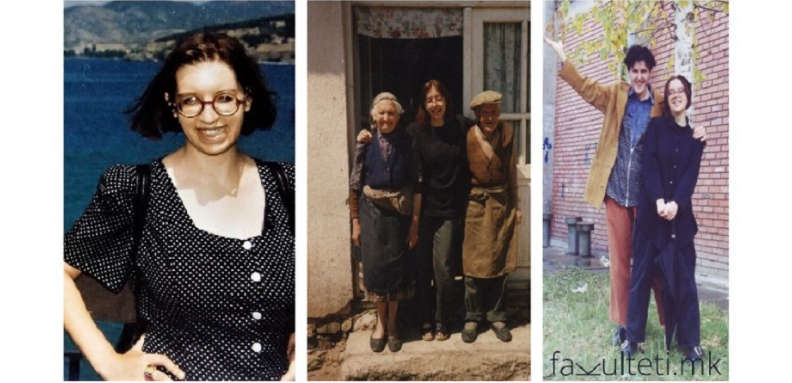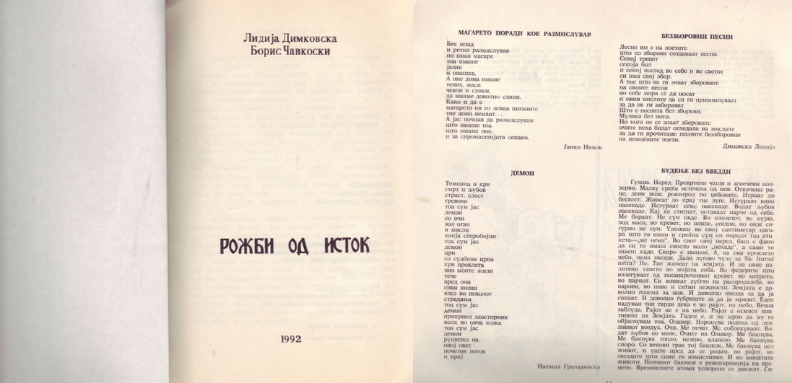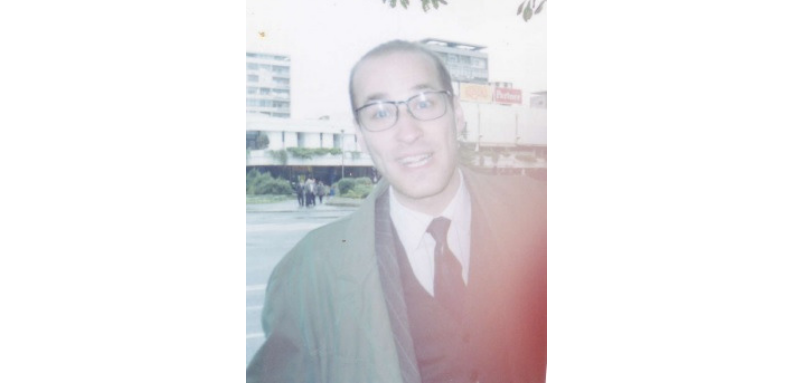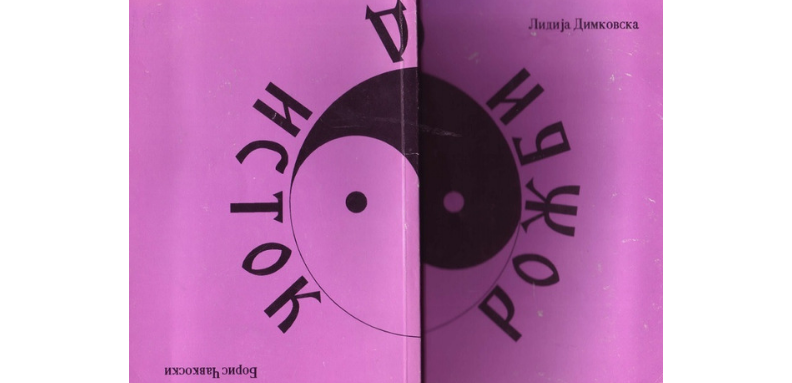



“WHEN I WAS A STUDENT” WITH LIDIJA DIMKOVSKA: I WANTED TO GRADUATE AS SOON AS POSSIBLE, TO READ ALL THE BOOKS THAT I DID NOT HAVE TIME TO READ WHILE STUDYING




“You, Lidija, one day, will certainly write prose, too!” But I was a hardened poet and I did not want to hear about it. I said that I would not forgive her for telling me so, and that I would never write prose. The assistant Biljana Angelovska had such eyes that they could see that and it turned me subconsciously towards the prose – Dimkovska recalls in the section that Fakulteti.mk realizes together with Pivara Skopje.
I submitted the documents for then Yugoslavian literature and Macedonian language. The day I did that, I met Biljana Angelovska-Biki, who was an assistant to General and Comparative Literature. When I told her who was my choice, she said: “How could you have avoided General and Comparative Literature ?!” I listened to it and in the very same day I took the documents and I enrolled there – says Lidija Dimkovska, writer, poetess, translator, one from our best and internationally acclaimed authors.
She graduated for less than four years and from today’s perspective, she said that it should take more time and there is no need of hurry.
At age 11 she read Zola
The book was my loyal friend from elementary school, and therefore she had almost no dilemma whether the faculty that will choose would be related to literature. She finished high school in “Zef Lush Marku” in Skopje.
– I was also interested in ethnology, anthropology, and I dreamed of enrolling in Orientalistics in Zagreb. But all this was somehow unreachable to me, both in a social and in an existential sense. And I was self-critical. However, the book meant more to me than anything else – said Dimkovska.
At 11 years old, she already read books by Emil Zola, and during the summer break, her parents persuaded her to go out to play. Her extra-curricular activities were associated with books, too. In school, together with the journalist Snezana Lupevska, they both went to the recital section. She published her songs in children’s magazines.
-My parents never dreamed of me becoming a doctor or engineer. My uncle, who studied history and lived for four years with us, was my model. He started his studies when I was first grade. I really wanted to open his student suitcase with which he went to college. I often put my drawings of girls to joke with him. He was an example to me that in your life you need to work hard to succeed in something, because he, however, came from a village to a large city and managed. He was the only one from the wider family who finished the college and we were really proud of him – the writer reminds.
Sheleva – the best lecturer at the faculty
She reminds of the first lecture on the introduction to literature that Professor Vlada Urosevic organized in the Museum of Macedonia.
– There for the first time I practically saw “The Great Mother” and everything that marks our culture and history. It was a very nice lecture. Urosevic began with from sociological, anthropological aspect to introducing us into literature. That practice was extended by his then-assistant Maja Bojadzievska, who gave us a questionnaire at the first meeting, why we want to study literature. We heard very interesting comments from colleagues – she says.
From all of the assistants and the professors who taught her, she singled out Elizabeta Sheleva, for which she claims was the best lecturer at the Faculty.
– She was assistant of the professor Milan Gjurchinov, but her exercises were not just exercises, but also workshops. She had a very curious spirit, never guided only by the curriculum of studying. She offered us books for reading, always established the context of connection between Macedonian and world literature. She encouraged us to write essays, criticisms. Those among us who were already writting, we honestly commented on each others works. There was one Igor Isakovski who was getting really upset when something was not good enough in a song, in his own or others – shares Lidija and admits that she may have expected more from the Faculty.
One of the assistants she will never forget is Biljana Angelovska, who knew antiquity perfectly.
She knew “Iliad” and “Odyssey’’ by heart. She was assistant of the professor Savo Cvetanovski. The assistants practically held the group. Her exercises were spectacular, with debates and talks about what the author wanted to say. I remember that in one such situation, she said to me: “You, Lidija, one day, will certainly write prose, too!” But I was a hardened poet and I did not want to hear about it. I said that I would not forgive her for telling me so, and that I would never write prose. Biki had such eyes that they could see that and it turned me subconsciously towards the prose – says Lidija.
She also mentioned Lidija Drakulevska-Kapushevska, which she was a dear person and thay sometimes wanted to even become louder, more aggressive in the attitude.
With some of the colleagues from the faculty and others, they formed two poetry clubs “The Little Prince” and later “Ilonai” together with Isakovski, Sasho Gigov-Gish, Renata Desoska, Ana Pejchinova, Boris Cavkoski and others.
Every week we met in the premises of the then Youth of the City of Skopje, and later at the Faculty of Philology. We read poetry, talked, and drank wine. All those years of studying, we practically have been very much in the field of poetry. It meant a lot to me in those days of studying, because most of all I loved poetry – she admits.
Everyone have individuals who have given a special impression on their studies. For Dimkovska, this was, among others, Gligor Nishotovsky and Snezana Bogatinoska.
– Gligor, who, unfortunately, a few years ago committed suicide, was the absolute best student, not only in my generation. And I’m very sorry that they did not understand it at my faculty and did not keep it. It was a brilliant mind!
– With Gianni (Snezana), who was from Krusevo, I felt the student life in student dormitories throughout Skopje. We are friends for almost thirty years.
First poem during the studies
As a student, Lidia published her first poetry collection “Rozbi od Istok”, along with Boris Chavkoski. They received the award for the best debut book “Studentski zbor” at the Struga Poetry Evenings.
– On one side were my songs, and on the other – his and in the middle were intercepted. With the money from the award, I bought the stories of Scheherazade that went out in “Children’s Joy”. Now I read her to my daughter from that book. We published the poetry book ourselves. We looked for sponsors, knocked from door to door and all helped us a bit. These were firms and companies that had nothing to do with literature. He released us “Kiro Dandaro”, and in order to reach Bitola, we certainly stopped. And on Struga Nights we also traveled highway – recalls Lidija.
With colleague Biljana Stojcevska, the daughter of writer Sande Stojcevski, they often studied together. Lidija says it wasn`t difficult for them to prepare the exams.
– I remember that once we had a moment of something out of the space. We took one toy and walked through the neighborhood. Two female students wear a doll and walk around the street. Biljana had a huge library, in which I discovered Castaneda, I read all the books from Marcel Proust, and it was simply difficult for me to study for college besides such books!
Working during studies improves self-esteem
She even studied, Dimkovska worked in cafes. She claims that it is very important to work even when studying and that in Slovenia where she has been living in the last ten years, it is a functioning system.
– It’s very normal to work even when studying. At that time I had the desire to buy an expensive book and I was constantly going to Tabernakul to look at it. It was the “Art of Interpreting Poetry” with poetic works of the best world poets and critical texts for the best world critics. It was very expensive and I did not know how to tell my parents that I wanted to have it, and in fact, I did not need it in studying. When I collected enough money, I bought it and I remember that after every walk at home after work at midnight, I always read from that book, it was my poetic bible, “Lidija said.
Working, she learned a lot about people. She says, her nature was shy, but that through this experience, she improved her self-esteem.
– In one of the cafes, a very interesting person about 40 years old, came frequently. He had Chehov Mustache, drank one and the same coffee and never said anything. For me, it’s an eternal enigma.
She had almost no subject studying without a strong willingness, and her grades were important, because she wanted to continue her education after college.
– The hardest subject for me was a Macedonian language, which gave it to us in a very theoretically, and it was sometimes difficult to learn and to take it. The other subjects were much more relaxed, because they were held by professors from our department.
From today’s point of view, she thinks that she may have been smarter to study something more practical, something that will help her more in life.
– I could write poetry and prose with any faculty. In that sense, I was praised by someone to advise me to choose something “usable”. I thought my writing would benefit from studying. On the other hand, I would not have met all those interesting people – recognizes the author of the novels “Spare Life”, “No-Ui”.
During the studies, Dimkovska had her engagements and vocation.
– At that time, the “Face” supplement in “Nova Makedonija” was a great magazine for literature and the then editor invited me to cooperate with them. I also wrote reviews for Macedonian Radio, and I also worked on the “Youth Channel” of MTV, I held talks with young poets and other interesting people. We had many chances to participate in public cultural and social life. But that was not enough for life. Those who guided all these things had criteria and were looking for us with talent. And “Student Word” was very much engaged – recalls Lidija.
After graduation, she left for Romania for postgraduate studies. At a time when the Internet was still in its infancy, she went from embassy to embassy to try her luck and receive a scholarship.
-Social status did not allow me to simply choose the postgraduate, and I did not know people who could to help me.
But when I graduated from college and I still worked at a coffee shop, I realized that if I stay in Skopje, that’s the only way I can work. The professors praised me that I was one of the best, but there was no place for me in an institution. Romania granted me a six-month scholarship, but when I went there, I stayed seven years old and received a doctorate, and later I opened the Macedonian-language lecture at the University of Bucharest, says Dimkovska.
After Romania, she had a “classic love story”. She met her husband in the same studies.









